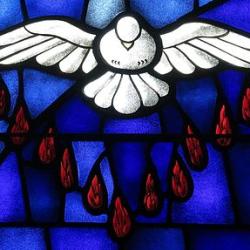From April 10, 2014, “Matthew 18 abuse needs to stop“:
Somewhere, at some point, I’m sure, someone must surely have cited Matthew 18:15-17 honestly and accurately, sincerely trying to be true to the spirit and the meaning of that passage. That’s probably happened too.
But 99 percent of the time that biblical text is invoked it’s by someone who’s being an insufferable, sanctimonious git.
Matthew 18:15-17 is one of the most abused passages in the Bible. It’s a slice from a series of pericopes in which Jesus is teaching about forgiveness. Forgiveness is important. And what Jesus had to say about forgiveness here is, as usual, pretty scary. Forgive others and you will be forgiven, Jesus said. Refuse to forgive others and forgiveness will be refused to you.
That’s daunting stuff — so much so that we tend to tune it out, even when we’re reciting it as part of the Lord’s Prayer (“forgive us our debts as we forgive our debtors“).
Matthew 18:15-17 is actually the least intimidating part of this little string of stories about forgiveness. It’s followed by the whole “70 times seven” bit, and then by the parable of the unforgiving — and therefore unforgiven — servant. Compared to those passages, Matthew 18:15-17 seems like a modest, pragmatic bit of advice. Here’s what it says:
If another member of the church sins against you, go and point out the fault when the two of you are alone. If the member listens to you, you have regained that one. But if you are not listened to, take one or two others along with you, so that every word may be confirmed by the evidence of two or three witnesses. If the member refuses to listen to them, tell it to the church; and if the offender refuses to listen even to the church, let such a one be to you as a Gentile and a tax-collector.*
The problem here is not with the passage itself, but with how it is used and abused. Christians who have treated others badly — who have, in fact, sinned against their brothers and sisters — treat this text like it’s their Miranda rights. They appeal to a legalistic application of this passage to distract from the wrong they have done. And thus Matthew 18 has become a refuge for scoundrels.












